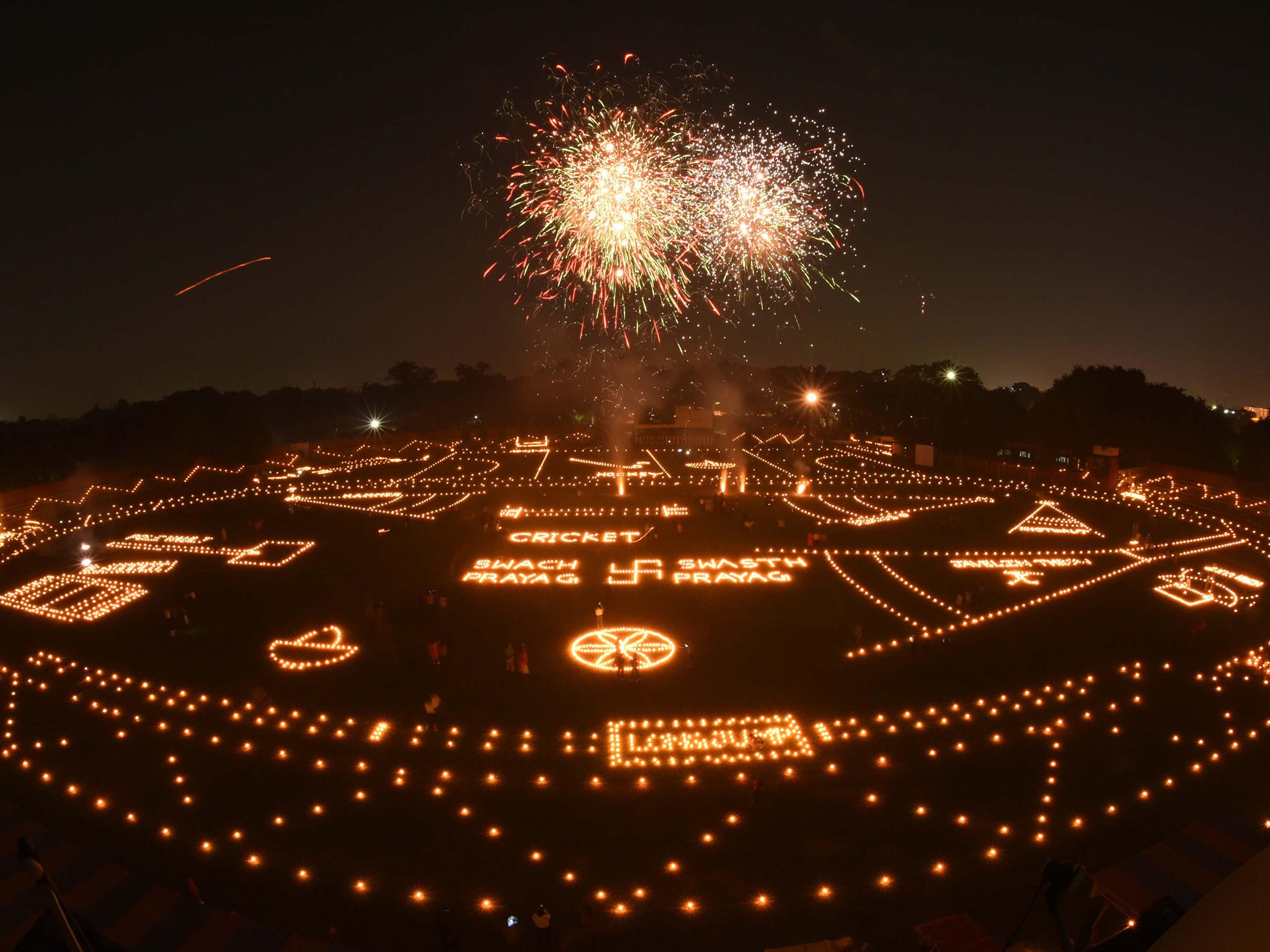Diwali 2017: Festival of light celebrations around the world
Hindus, Sikhs and Jains celebrate triumph of light over darkness, good over evil, knowledge over ignorance and hope over despair

Your support helps us to tell the story
From reproductive rights to climate change to Big Tech, The Independent is on the ground when the story is developing. Whether it's investigating the financials of Elon Musk's pro-Trump PAC or producing our latest documentary, 'The A Word', which shines a light on the American women fighting for reproductive rights, we know how important it is to parse out the facts from the messaging.
At such a critical moment in US history, we need reporters on the ground. Your donation allows us to keep sending journalists to speak to both sides of the story.
The Independent is trusted by Americans across the entire political spectrum. And unlike many other quality news outlets, we choose not to lock Americans out of our reporting and analysis with paywalls. We believe quality journalism should be available to everyone, paid for by those who can afford it.
Your support makes all the difference.Millions of people have flocked to firework displays, prayers and events to mark the start of Diwali, the annual festival of light celebrated every autumn around the world.
The festival sees Hindus, Sikhs and Jains celebrate the triumph of light over darkness, good over evil, knowledge over ignorance and hope over despair.
The date of Diwali changes each year in accordance with the Hindu lunar calendar.
It lasts five days in total, with the festival of lights falling on the third day of celebrations, which arrives on the 15th day of the Hindu month of Kartik.
This year, that falls on 19 October.
Also known as Deepavali, a Sanskrit word meaning “rows of lighted lamps”, it is one of the most popular festivals celebrated across South Asia.
It sees millions of earthenware oil lamps, called diyas, light up people’s homes, shops, public spaces and places of worship as part of celebrations which mark the start of the Hindu new year.
It is also celebrated with music, candles, fireworks and the sharing of traditional sweets.
Many people prepare for the festival by cleaning and decorating their homes, and on the night of celebrations wear new clothes and take part in family puja, or prayers to Lakshmi.
Rangoli artwork – patterns and designs made from coloured powders, ground rice powders and flowers – are displayed, commonly depicting a lotus leaf.
Join our commenting forum
Join thought-provoking conversations, follow other Independent readers and see their replies
Comments